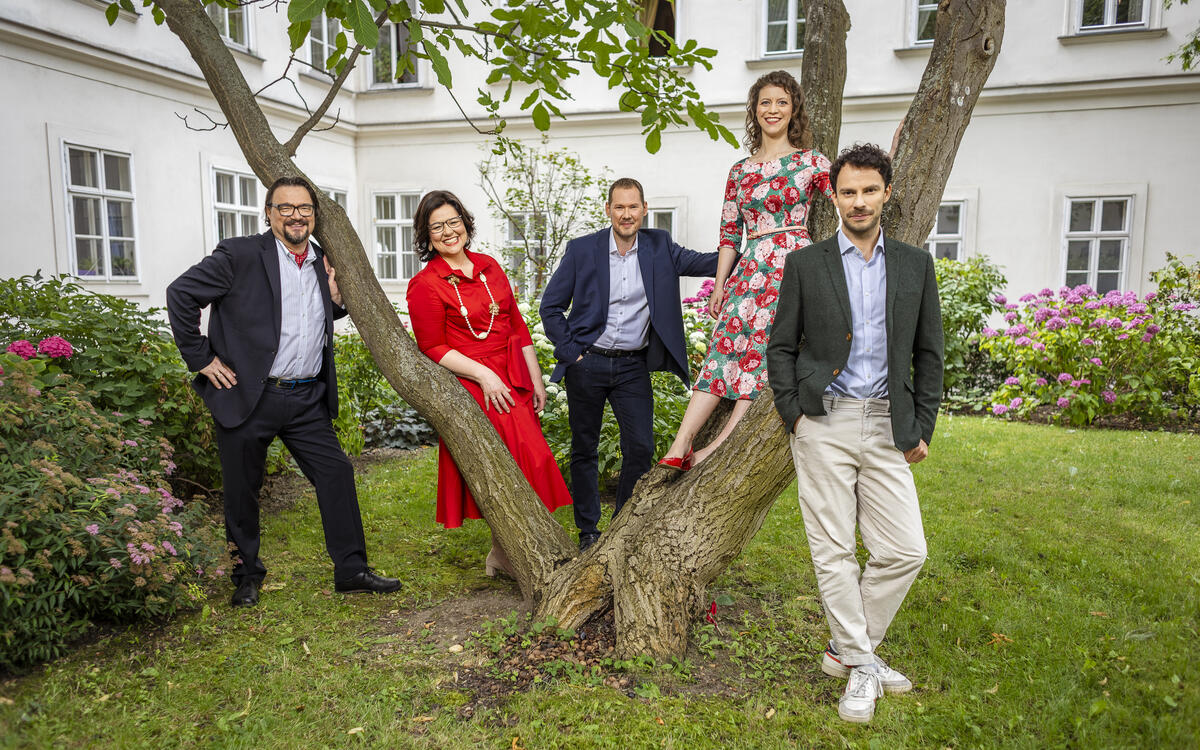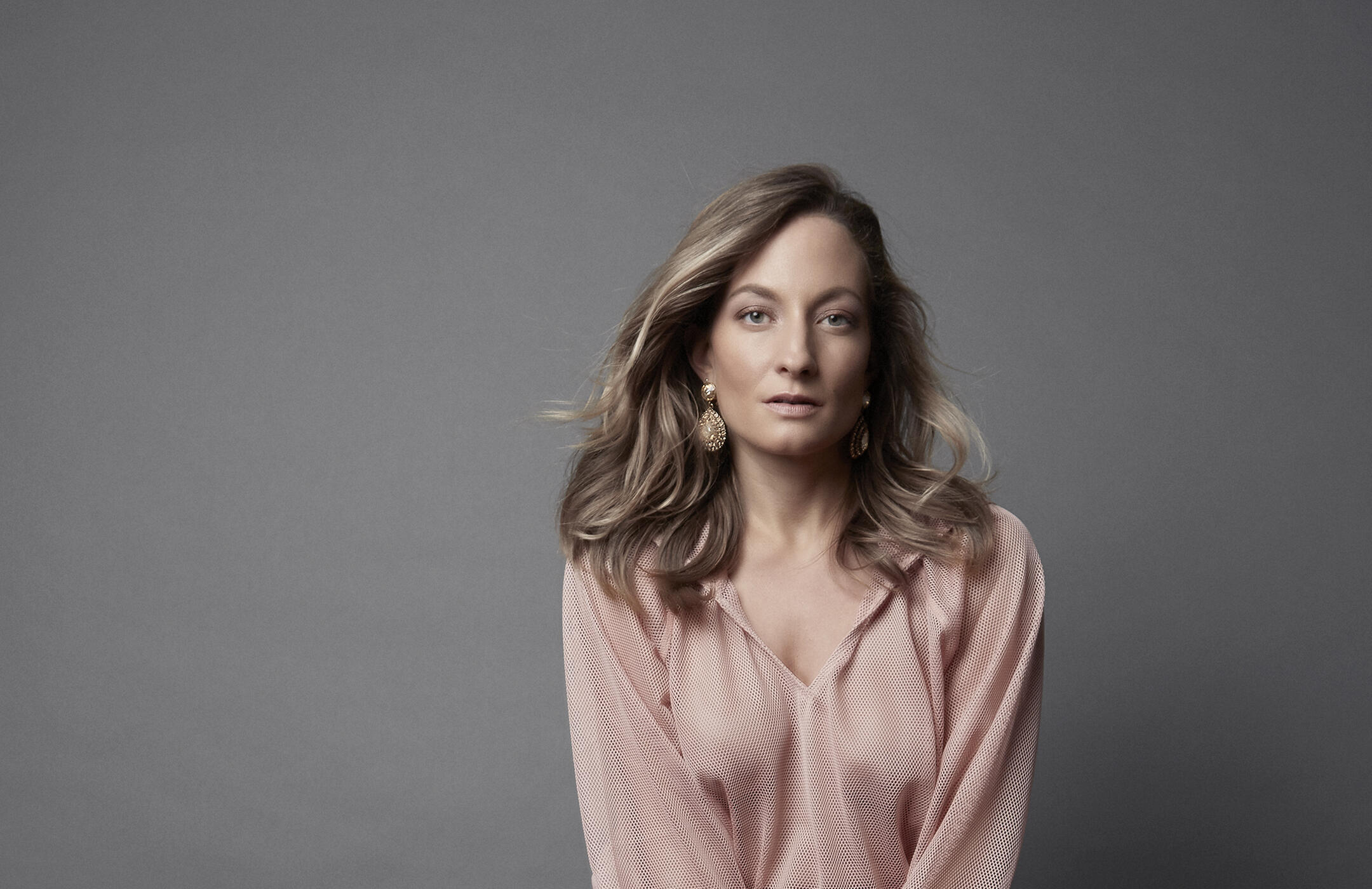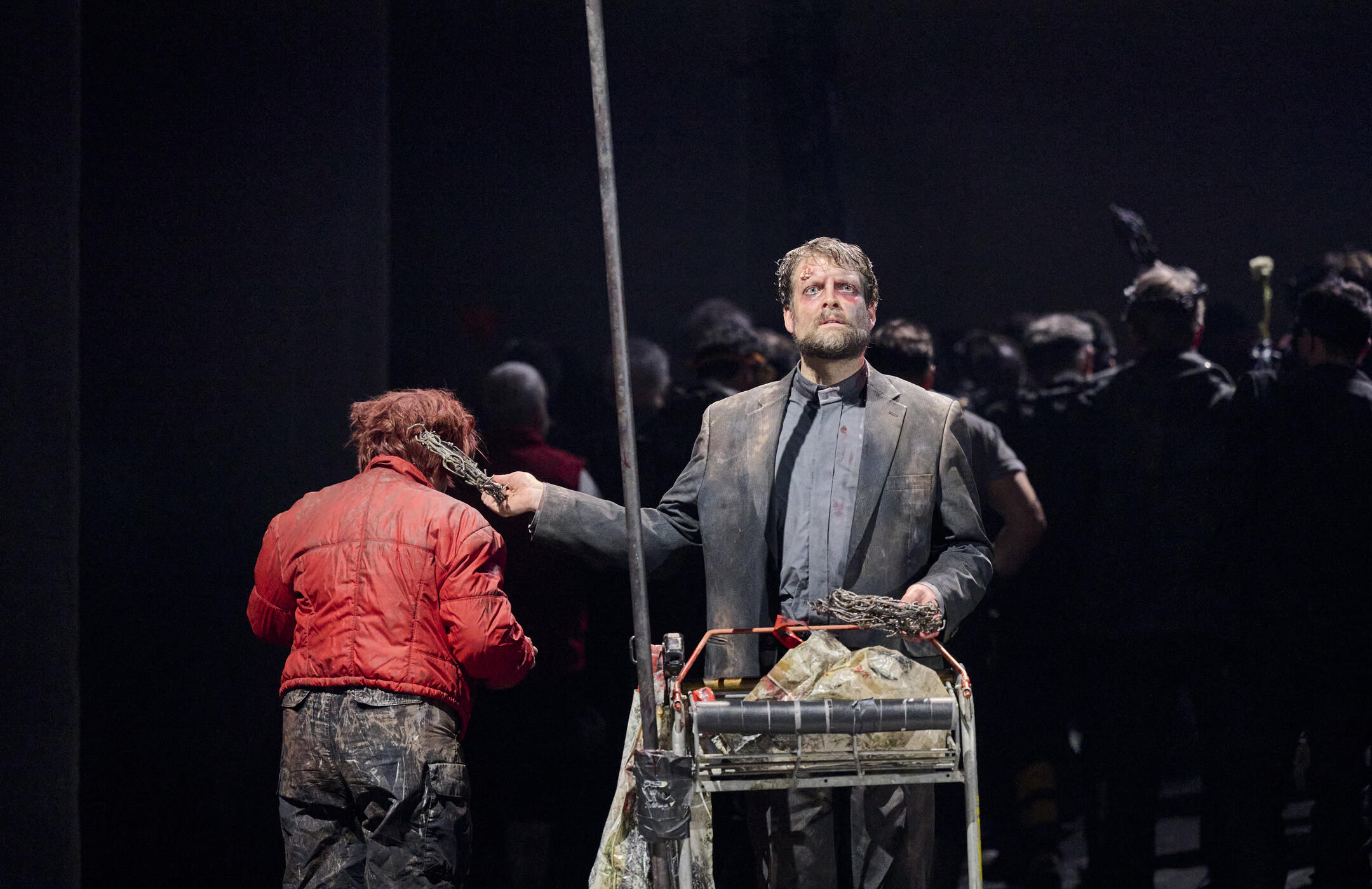LATEST NEWS

The sum of our qualities is our quality!
The name Machreich stands not only for an invitation to active music-making and the economic success resulting from it. The agency’s founder and her colleagues dedicate themselves first and foremost to the unique artistic development of each of their singers. In an atmosphere of mutual trust and personal connection, individual projects can be conceived and inspiring constellations initiated. Intuition and discretion are the highest precepts for the work of a highly qualified team, which engages in its work with heart and mind.
(photo credit: Stephan Doleschal)
Machreich Artists Management
“Art is not, after all, a pretty add-on – it is the umbilical cord which connects us to the divine; it guarantees our identity as humans.”
(Nikolaus Harnoncourt)
CALENDAR
Ambroise Thomas: Scenes from »Hamlet«. Opera in five acts (1860–1864)
Hector Berlioz: Tristia. Marche funèbre pour la dernière scène d'Hamlet
Gabriel Fauré: Requiem
Sabine Devieilhe, Soprano
Stéphane Degout, Baritone
Pygmalion, Choir and Orchestra
Raphaël Pichon, Conductor
Texts from “Capriccio” by Richard Strauss and Clemens Krauss
Richard Strauss: Sextet for strings from the opera “Capriccio”
Ludwig van Beethoven: String Quartet No. 9 in C major op. 59 No. 3
Toshiro Mayuzumi: Prelude for string quartet
Poems from the “Book of Songs” by Heinrich Heine
Robert Schumann: Poet's Love op. 48 - arrangement for voice and string quartet by Wim ten Have
Ida Aldrian, mezzo-soprano
Iris Icellioglu, viola
Merllin Schirmer, violoncello
Amaris Quartett:
Hibiki Oshima, violin
Felix Heckhausen, violin
Maria Rallo Muguruza, viola
Clara Grünwald, violoncello
Making music together in the Amaris Quartet is like a refreshing breath for my artistic work in the orchestra. These concerts are undoubtedly the most musically exhilarating moments that I can experience as a musician. They sharpen my hearing and subtly inspire my love of music.
Felix Heckhausen, second violinist
Given the cruelty of the Second World War, Richard Strauss' "Capriccio" seems removed from the world: using the musical means of the late 19th century, the time of the late 18th is described here in the 20th century. In the string sextet with which the action begins, this “rapture” is captured as if in a snapshot. Ludwig van Beethoven's third string quartet was also considered to be incomparably out of time. The “crazy” music, described as “a madman’s patchwork,” was met with incomprehension among the audience. Beethoven consciously sought to confront expectations when he took chamber music out of the living rooms and brought it into the large halls. The music of the Japanese Toshirō Mayuzumi is also permeated by the adventure-seeking desire to experiment: his music oscillates between the traditional style of late romanticism, jazz, early electronic sounds and the musical idioms of Asia. Schumann also took a big leap when he began his “poet love” in 1840. Until then he had only published piano music for ten years. At the moment of emotional emergency, Schumann had just married Clara Wieck, the musical monument of Heinrich Heine's great words and, above all, of great love was created.
Gustav Mahler: Symphony No. 2 in C minor - "Resurrection"
Christiane Karg, Soprano
Anna Lucia Richter, Mezzo-soprano
Budapest Festival Orchestra
Groot Omroepkoor
Iván Fischer, Conductor
Richard Wagner: Parsifal
Paweł Konik, Amfortas
David Steffens, Gurnemanz
Samuel Sakker, Parsifal
Shigeo Ishino, Klingsor
Rosie Aldridge, Kundry
Peter Lobert, Titurel
Claudia Muschio, 1.1. Flower Girl
Natasha Te Rupe Wilson, 1.2. Flower Girl
Marion Germain, 1.3. flower girl
Alma Ruoqi Sun, 2.1. flower girl
Lucia Tumminelli, 2.2. flower girl
Itzeli Jáuregui, 2.3. flower girl
Cornelius Meister, Musical Director
Calixto Bieito, stage direction
Susanne Gschwender, stage
Mercè Paloma, costumes
Reinhard Traub, lighting
Manuel Pujol, choir and children's choir
Xavier Zuber, dramaturgy
Stuttgart State Orchestra
Stuttgart State Opera Chorus
Children's Choir of the Stuttgart State Opera
Robert Schumann: Das Paradies und die Peri, op. 50
Lina Johnson, Peri
Johanna Rosa Falkinger, Jungfrau
Marianne Beate Kielland, Engel
David Fischer, Erzähler
Kieran Carrel, Jüngling
Manuel Walser, Der Mann
Nicolas Brooymans, Gazna
La Capella Nacional de Catalunya
Le Concert des Nations
Jordi Savall, Conductor
Wolfgang Amadeus Mozart: Così fan tutte KV 588
Olga Kulchynska, Fiordiligi
Emily Sierra, Dorabella
Konstantin Krimmel, Guilelmo
Daniel Behle, Ferrando
Sandrine Piau, Despina
Georg Nigl, Don Alfonso
Christopher Moulds, Musical Director
Benedict Andrews, Director
Magda Willi, stage
Victoria Behr, costumes
Mark Van Denesse, lighting
Franz Obermair, choir
Katja Leclerc, dramaturgy
Bavarian State Orchestra
Bavarian State Opera Chorus












